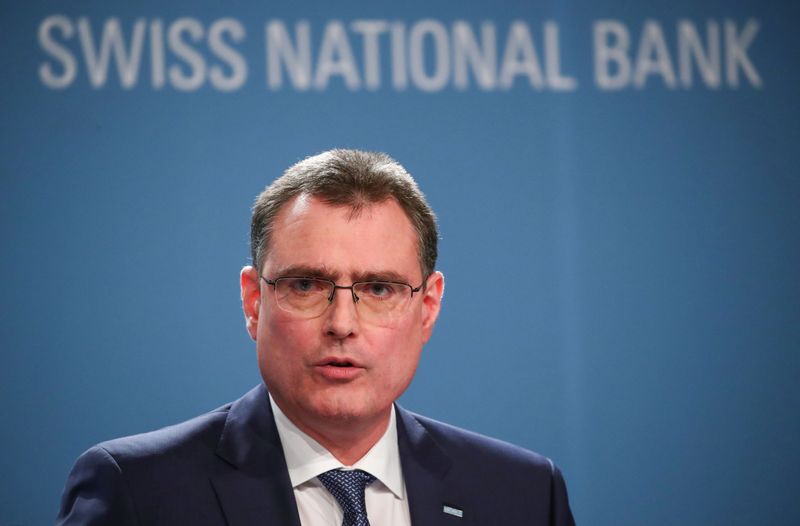
ZURICH (Reuters) – The coronavirus epidemic has triggered renewed upward pressure on the Swiss franc, Swiss National Bank Chairman Thomas Jordan said, underscoring the need for an expansive monetary policy to help soften the safe-haven currency.
The franc rose to its highest level against the euro in nearly three years last week as investors sought safe assets, while there were indications that the SNB has resumed foreign currency interventions.
“We believe that the coronavirus played a role in the recent appreciation of the Swiss franc,” Jordan told the Frankfurter Allgemeine Zeitung in an interview to be published on Wednesday.
“The appetite for risk in the markets has been reduced. As is often the case in such situations, the franc has appreciated as a result.”
Despite the recent easing in trade tensions between the United States and China, global uncertainties have convinced the SNB its current expansive policy was correct, Jordan said.
The SNB has the world’s lowest interest rates and has been committed to intervening in currency markets to relieve pressure on the franc, whose high value weighs on Switzerland’s export-reliant economy.
“We are sticking with the negative interest rate and remain prepared to intervene on the currency market if necessary,” Jordan said in the interview.
“Both instruments are indispensable. They reduce pressure on the franc and ensure price stability.”
This would continue despite Switzerland appearing on a U.S. Treasury watchlist of potential currency manipulators, a label rejected by Jordan.
“Let me make one thing clear – neither Switzerland nor the SNB is a currency manipulator,” he told the paper.
The franc is a highly valued currency, he added, and the SNB was not trying to weaken it to gain an advantage over other countries.
The SNB would still buy foreign currencies if it thought necessary despite appearing on the watchlist, Jordan said.
Negative interest rates meanwhile would likely continue for some time, he said. The bank also had to scope to cut interest rates further from the current -0.75% level which has drawn increasing criticism in Switzerland.
“We would have nothing against abolishing the negative interest rates as soon as this is possible,” Jordan told the paper.
“But in the current environment….if we were to set the interest rate at zero now, the franc would appreciate very sharply, triggering a recession. Unemployment would rise, and inflation would slide into negative territory.”
Fusion Media or anyone involved with Fusion Media will not accept any liability for loss or damage as a result of reliance on the information including data, quotes, charts and buy/sell signals contained within this website. Please be fully informed regarding the risks and costs associated with trading the financial markets, it is one of the riskiest investment forms possible.



